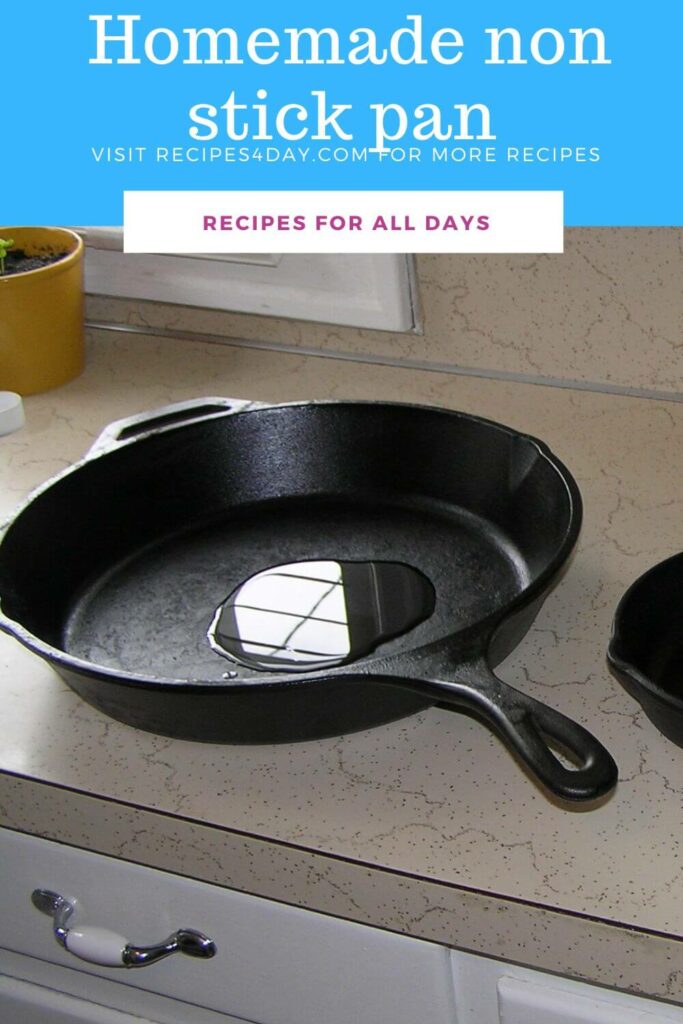In the hotel industry many of the old style hotels would never purchase non stick pans, one reason was in the “old days” they did not exist and another was that for heavy usage they would never last long. They would get scratched, dented, burnt, broken, smashed and even stolen, so to avoid this they would make their own non stick variety that would be hardened, sturdy and last forever.
I have done this many times personally and this is how they do it:
When I was conducting my training there was no such thing as non stick pans and they would use cast iron, very heavy and durable pans which needed to be “seasoned” for them to be able to be non stick.
On receiving a new, straight from the supplier, cast iron frying pan or sautéing pan, we used to first place it on a solid top stove, empty with absolutely nothing inside and get it so hot that it would be smoking.
We would then place enough course sea salt in the smoking hot pan to cover its entire cooking surface until it was about 2cm thick. We would leave the hot pot on the stove with the salt and slowly burn and cook the pot with the salt inside. The salt will very slowly “cook” by smoking, burning and turning the salt very slowly to a dark brown colour.
We would then discard the salt in a bin, get a piece of cloth (a towel cloth like an old bath towel or face cloth) dip it in oil and wipe or rub the pot until the hot metal would absorb the oil making the pan shiny.
When the pan is smoking hot, we would them wipe the pan clean with another piece of kitchen towel and then proceed with the whole process all over again from the beginning.
After doing this 2 or 3 times the metal will have absorbed the oil making the metal very shiny, “seasoned” and have a homemade non stick effect. When you have done this you need to try out the pan by making an omelet, if the eggs stick, you have to start all over again until the pan cooks an omelet without the eggs sticking.
The act of “seasoning” the pan may take a few days, a week on more than a week, but it is definitely a loving care process.
It is VERY important to know that this kind of pan, once seasoned can never be washed in water; they are just wiped clean with a dry kitchen cloth or paper towel. Water and this type of non stick pan are worst enemies, washing the pan with soapy water will ensure that you have to start the whole process again from the very beginning.
Once any metal which includes a barbecue grill, pots and pans or skillets absorb enough oil and become seasoned, nothing will ever stick to them again if you take care of them.
Even when you are using a barbecuing grill, you must rub the grill irons with an oily cloth enough times to ensure the metal has absorbed it. The metal will look moist and shiny and no food will stick to this metal. If the bars are hot, very dry and dull, anything you add to this grill will immediately stick and when you pull away the food half of it will still be stuck to the grill bars and then burn.
Metal which is used for cooking needs to be seasoned with oil and this takes patience, time, tender loving care and lots of effort, but once you get the pan the way you want it, protect it with your life as you will be the envy of the chef community.

